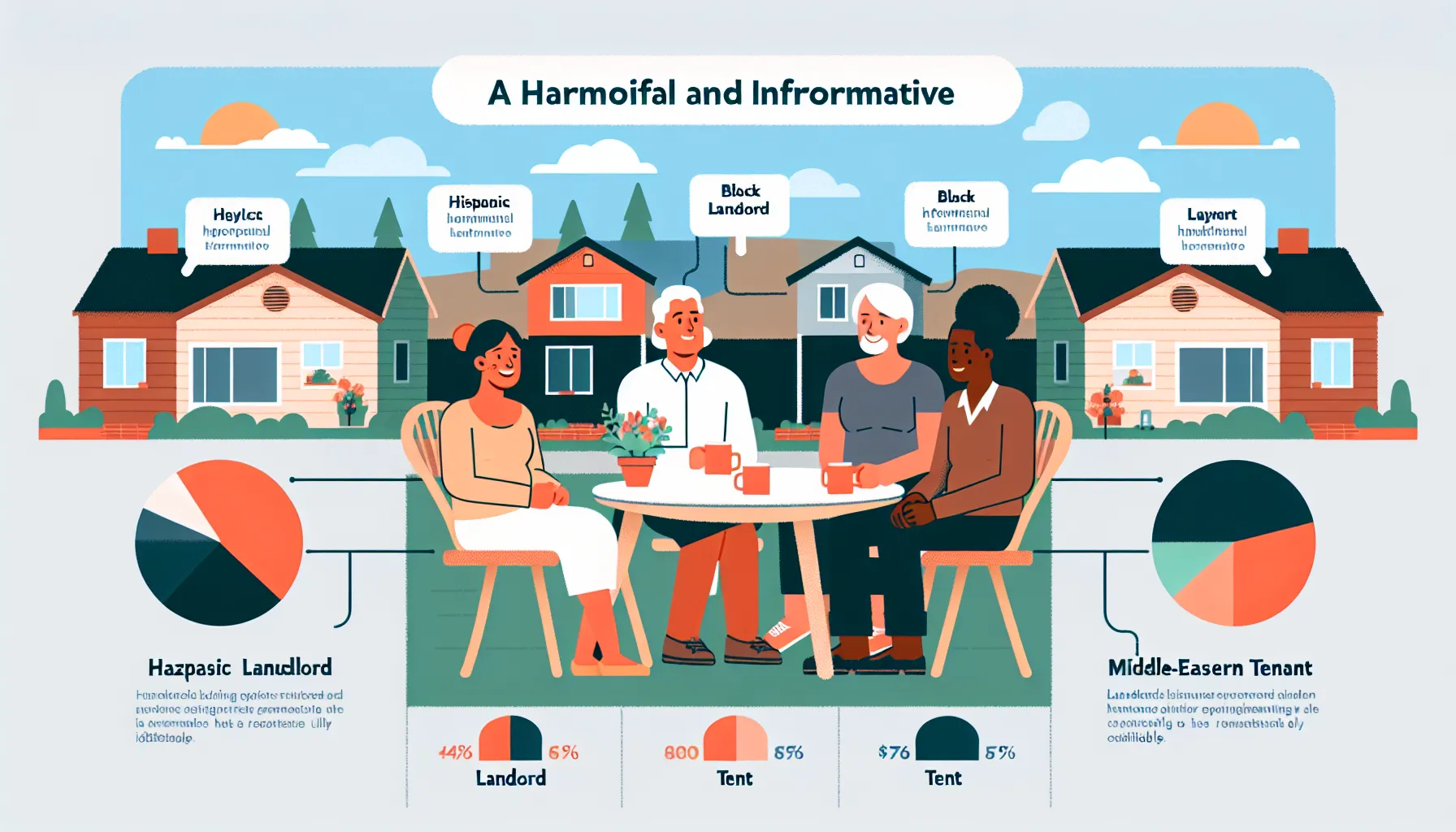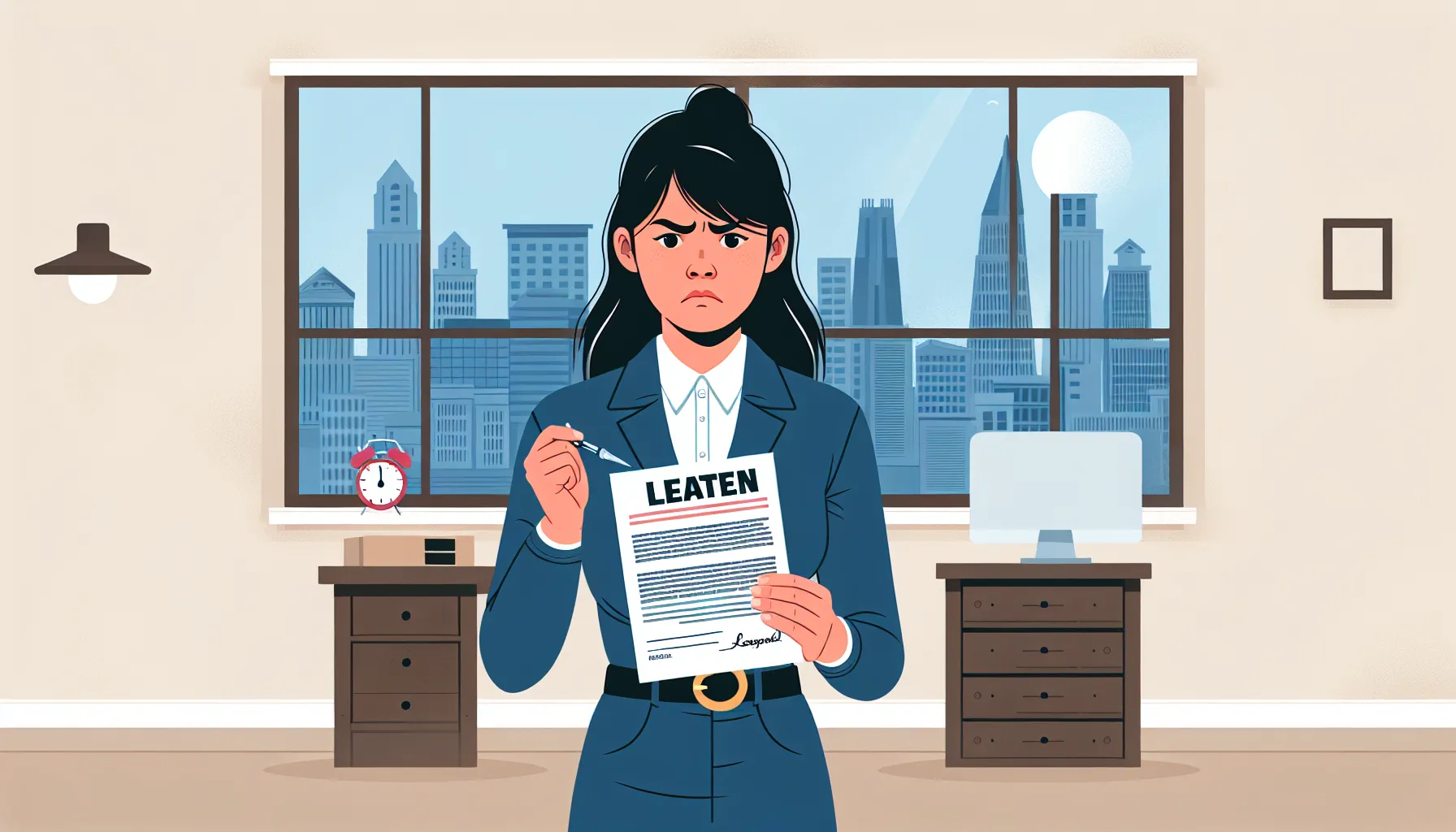Key Takeaways
- Effective lease enforcement in Hayward requires clear communication, proper documentation, and adherence to local regulations to protect both landlords and tenants.
- Addressing common issues like late payments, unauthorized occupants, or property misuse promptly helps prevent disputes and maintain a balanced landlord-tenant relationship.
- Staying informed about Hayward-specific tenant protection laws and notice requirements ensures compliance and avoids legal complications.
- Routine property inspections, consistent record-keeping, and open dialogue with tenants build trust and uncover potential issues early.
- Proactive lease enforcement, mediation, and legal remedies provide systematic ways to resolve disputes while minimizing stress and potential conflicts.
- Clearly defined and specific lease agreements reduce misunderstandings, set expectations, and help prevent lease violations.
Lease enforcement can feel overwhelming, especially when you’re trying to balance tenant relationships and property responsibilities. In Hayward, where rental agreements are key to protecting both landlords and tenants, understanding the process is crucial. How do you handle lease violations while maintaining a fair and professional approach?
Whether it’s addressing late payments or ensuring tenants follow the agreed terms, staying proactive can save time and prevent bigger issues. Clear communication and consistent action are essential to keeping your property running smoothly. Are you confident in managing these challenges, or do you find yourself unsure of the best steps to take?
Understanding Hayward Lease Enforcement
Lease enforcement in Hayward involves addressing tenant behaviors that conflict with the terms of their rental agreement. Clear communication and documented processes help resolve issues effectively. Whether it’s late rent payments, unauthorized occupants, or property misuse, a systematic approach prevents misunderstandings and builds trust.
Hayward landlords must comply with local regulations while managing lease violations. These rules may cover notice periods, filing procedures, and tenant protections. Awareness of these laws safeguards rights and ensures decisions align with legal standards. Are your current procedures in line with Hayward’s requirements?
Regular property inspections and consistent record-keeping simplify lease enforcement. Semi-annual checkups, for example, can uncover maintenance needs or violations early. Written documentation for every violation provides clarity in case of disputes. How do you monitor and document tenant compliance?
Proactive enforcement addresses problems before they escalate. Addressing concerns promptly minimizes risks, maintaining harmony between tenant and landlord obligations. Have you established a system to handle lease breaches efficiently?
Key Regulations Governing Hayward Lease Enforcement

Hayward lease enforcement involves balancing tenant rights with landlord responsibilities. Understanding the regulations helps maintain fair practices and avoid disputes. How familiar are you with the specific laws governing lease enforcement in this region?
Tenant Rights and Responsibilities
Tenants in Hayward are protected by specific rights that promote fair treatment. They have the right to a safe, habitable living environment free from hazards. These rights extend to regular maintenance, timely repairs, and protection from illegal evictions. Tenants are also obligated to pay rent on time, adhere to lease terms, and maintain the property’s condition. For example, tenants must avoid unauthorized sublets and report damages promptly. Could a better understanding of these obligations improve communication with your tenants?
Landlord Obligations
Landlords in Hayward must follow clear guidelines to protect tenant rights. They’re required to provide written lease agreements outlining terms like rent amount, due dates, and property rules. If lease violations occur, landlords need to issue proper notices based on local regulations. For instance, a three-day notice is typical for unpaid rent, but compliance with eviction laws is mandatory. Additionally, conducting routine property inspections helps identify concerns early. Are your current practices aligned with these obligations to prevent unnecessary issues?
Common Issues in Hayward Lease Enforcement

Lease enforcement in Hayward can bring challenges for both tenants and landlords. Addressing these issues effectively requires understanding the specific problems that arise and the steps needed to resolve them. How do you approach these difficulties to maintain a professional and fair relationship with tenants?
Lease Violations by Tenants
Lease violations disrupt the balance of rental agreements and can strain relationships. Common violations include late rent payments, unauthorized occupants, excessive noise complaints, or property damage. For example, tenants may allow guests to stay beyond reasonable limits, creating complications for occupancy rules.
To address these issues, I find documentation and clear communication essential. Have you considered how consistent reminders and well-defined lease terms could curb recurring problems? Proactively conducting inspections helps uncover potential issues before they escalate. Do you have a process in place for notifying tenants of violations while respecting local regulations?
Unlawful Practices by Landlords
Landlords may unintentionally engage in practices that conflict with local requirements. Examples include improper eviction notices, denying repairs that impact habitability, or unjustly withholding security deposits. Actions outside legal guidelines can lead to disputes and penalties.
I focus on staying informed about Hayward’s tenant protection laws to avoid mistakes. Are your policies aligned with current regulations? Providing proper documentation for lease terms, rent increases, or repairs fosters transparency. Reflecting on these practices, how might you improve communication to meet tenant needs and comply with local laws?
Steps to Enforce a Lease in Hayward

Lease enforcement can feel challenging, especially when addressing tenant issues while protecting your property rights. Understanding the steps involved helps clarify the process and minimizes unnecessary stress. Have you thought about how a clear process could improve landlord-tenant relationships?
Filing a Complaint
I start by identifying the lease violation and gathering evidence. Documentation is essential—photos of property damage, copies of bounced checks, or records of noise complaints clarify the issue. Next, I review the lease agreement, checking for sections about the violated terms. Then, I issue a formal written notice to the tenant, detailing the violation and requesting corrective action within the allowed timeline.
If the issue persists after proper notice, I consider filing a formal complaint with the local court. Hayward landlords must follow specific filing procedures that often require submitting forms, paying filing fees, and serving legal documents to tenants. Remaining methodical and attentive to details during this step reduces errors that could prolong the process.
Mediation and Legal Remedies
Mediation often helps when communication breaks down. In Hayward, seeking a third party to mediate a discussion allows both landlords and tenants to express concerns and work toward a solution. I’ve found this step useful for resolving disputes like unpaid rent or property misuse without proceeding directly to legal action. Mediation promotes cooperation and avoids escalating conflicts.
If mediation fails, legal remedies may be the next step. For serious lease violations, such as habitual nonpayment or property destruction, I explore filing for eviction while adhering to state and city regulations. Hayward’s landlord-tenant laws demand compliance with notice periods and proper documentation, which I re-check before taking this route to avoid complications.
Have you considered how mediation or small claims might work in certain disputes? These alternatives often save time and preserve relationships.
Challenges in Hayward Lease Enforcement

Lease enforcement in Hayward presents several complexities for landlords. Local regulations require landlords to comply with strict laws regarding notices, tenant protections, and filing procedures. Missing any of these steps can lead to delays or disputes. How confident are you in managing the legal aspects of enforcement while maintaining clear tenant communication?
Dealing with repeated violations, like late payments or unauthorized occupants, can strain the landlord-tenant relationship. Balancing firmness with fairness is crucial but not always easy. Have you experienced tenants disputing violations despite clear evidence?
Tenant rights in Hayward are highly protected, which adds another layer of responsibility. For example, providing proper notice periods before taking action is mandatory. If you overlook these requirements, you risk penalties or legal challenges. How do you handle staying compliant with all local regulations?
Another common challenge is documentation. Without a clear record of all notices, inspections, or tenant interactions, enforcement becomes harder. Keeping consistent records of lease terms, communications, and violations is vital. Do your current systems help you track and manage this effectively?
Finally, conflict resolution can become complicated. While mediation offers a less legalistic way of resolving issues, tenants may not always agree to it. In such cases, landlords face the decision to pursue legal action or find alternative approaches. How frequently do you seek legal remedies, and are they helping you achieve favorable outcomes?
How to Prevent Lease Disputes in Hayward

Clear lease agreements are the foundation of preventing disputes. Every agreement should outline key terms like rent amounts, payment deadlines, occupancy limits, maintenance responsibilities, and behavior expectations. Including specific details leaves less room for misunderstandings.
Regular communication builds trust with tenants. Respond quickly to inquiries and check in periodically to address minor issues before they escalate. Open dialogue helps resolve concerns and fosters a positive relationship.
Accurate documentation protects everyone involved. Record lease violations, maintenance requests, inspection results, and any correspondence with tenants. These records provide evidence if disagreements arise.
Routine inspections help identify problems early. Property visits allow landlords to monitor maintenance needs, verify lease compliance, and address potential disputes. Notify tenants beforehand to comply with local regulations.
Consistent enforcement avoids confusion. Address every lease violation equally, regardless of the situation. Tenants are less likely to contest rules if enforcement remains impartial and predictable.
How confident are you in your ability to communicate with tenants? Do your lease agreements offer the clarity needed to avoid disputes? Small adjustments in these areas can significantly reduce conflicts, saving time and effort for all parties involved.
Conclusion
Navigating lease enforcement in Hayward requires a thoughtful approach that balances legal compliance with effective communication. Staying proactive, maintaining thorough documentation, and understanding local regulations are key to addressing challenges while fostering positive tenant relationships.
By refining lease agreements and prioritizing clear communication, landlords can minimize disputes and protect their investments. Taking the time to build trust and enforce terms consistently not only simplifies management but also creates a more cooperative rental experience.
Frequently Asked Questions
What is lease enforcement in Hayward?
Lease enforcement in Hayward refers to the process landlords follow to ensure tenants comply with the terms of their rental agreements. This includes addressing issues like late rent payments, unauthorized occupants, property misuse, or noise complaints while adhering to local regulations.
Why is clear communication important in lease enforcement?
Clear communication helps prevent disputes by ensuring tenants understand their obligations. It also fosters better relationships and makes resolving issues easier. Miscommunication can lead to misunderstandings, strained relationships, and potential legal problems.
What are common lease violations landlords face?
Landlords often deal with late rent payments, unauthorized occupants, excessive noise complaints, and property damage. Addressing these issues promptly and consistently is essential to maintain smooth operations.
What steps should landlords take to enforce a lease in Hayward?
Landlords should first identify violations and document evidence. Next, they should issue formal written notices and, if necessary, pursue mediation or legal action, ensuring compliance with Hayward’s local laws.
How can proactive management help prevent lease disputes?
Proactive management, including regular property inspections, clear communication, and consistent enforcement of lease terms, helps identify and address potential issues early. This reduces the likelihood of disputes and fosters trust.
What should a landlord do if a tenant refuses mediation?
If tenants refuse mediation, landlords may need to explore legal options, such as filing a complaint with the court or pursuing eviction. They must ensure these actions comply with Hayward’s regulations to avoid penalties.
How can landlords ensure lease agreements are effective?
Landlords should create clear, detailed lease agreements that outline tenant responsibilities, rent terms, and property rules. Updating them regularly to comply with local laws ensures they remain enforceable.
What local regulations must landlords follow in Hayward?
Landlords must adhere to Hayward’s laws, including proper notice periods, tenant protection regulations, and legal procedures for lease enforcement. Understanding these rules is crucial to avoid legal disputes.
Why is documentation important in lease enforcement?
Proper documentation creates a clear record of lease terms, tenant violations, and actions taken. This evidence is essential for protecting the landlord’s rights during disputes or legal proceedings.
How can landlords balance tenant rights with their responsibilities?
Landlords should ensure safe living conditions, comply with local laws, and communicate openly. Balancing tenant rights with lease enforcement responsibilities fosters cooperation and reduces conflict.
